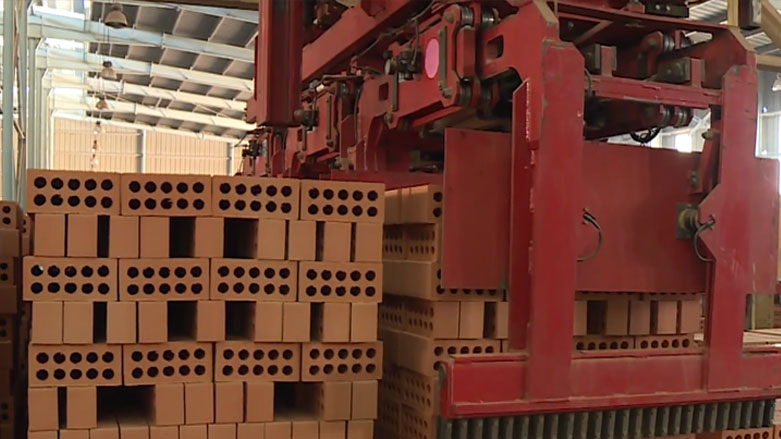Kurdistan-made bricks attract local and international interest

ERBIL (Kurdistan 24) – High-quality bricks made in the Kurdistan Region have recently attracted attention in Iraq and internationally, from as far away as Germany and the Netherlands.
The Hilal factory, based in the Kurdistan Region’s capital Erbil, is the largest in the Region and produces between 1,000 and 1,200 tons of bricks every day, sales manager Sarwar Qassim told Kurdistan 24.
Their clay-based blocks are used as construction material across the Region as they resist both high heat and cold temperatures. The bricks are produced in different sizes and shapes for the market and the raw materials are all sourced from the Region.
According to Qassim, the factory can produce enough bricks for investment projects currently under construction.
“There is a high demand [for the bricks] and we are in contact with two other companies that have asked to export the materials outside the country, including Germany and the Netherlands,” Qassim added.
The factory has provided job opportunities for more than 150 local workers.
Following an economic downturn and drop in oil prices in 2014, the Kurdistan Region has begun to shift its focus from hydrocarbon sales, on which the economy is heavily dependent. Industrialization and agriculture are the two sectors that officials and residents regularly stress as a way to salvage the economy and avoid potential decline.
The currency devaluation makes the Region rely more on materials that can also be produced locally, Kamal Muslim, the Kurdistan Regional Government (KRG) Minister of Trade, told Kurdistan 24.
“The people should go towards agriculture, livestock, and reviving factories,” Muslim added, in order to reduce overreliance on public sector jobs, which are a burden on the Kurdistan Region’s economy.
According to Qassim, the factory’s locally produced bricks can meet not only local demands but compete with foreign products.
Editing by Joanne Stocker-Kelly
Hemn Hayni contributed to this report
